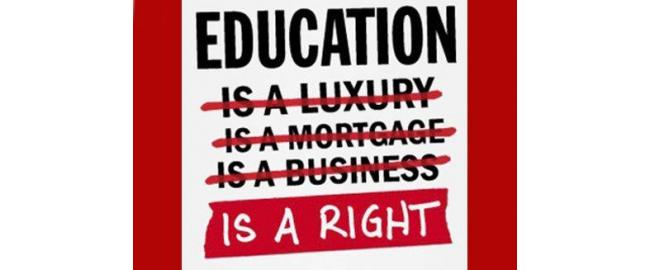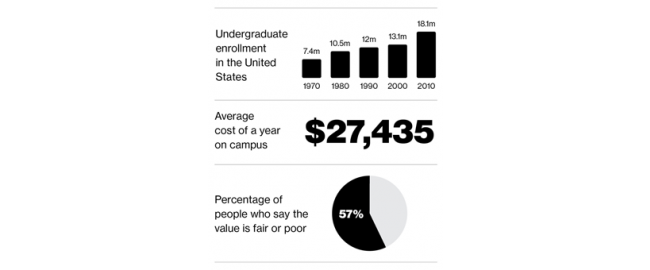UNIVERSITY TUITION SHOULD BE FREE
The economic growth of any nation depends on its workforce but also on technology and innovation while its health and stability relies on a broader, more rounded appreciation of other intellectual disciplines.
Nobody really knows how much talent is wasted because young students cannot face the rising costs of a university education and are forced by circumstance to join an already strained job market.
Economic uncertainty has constrained wages, limited job opportunities and enforced caution on families that might otherwise have supported their children through a university education.
The fact that so many graduates struggle to find appropriate work offers little incentive to anyone considering advanced education but the prospect of additionally being saddled with enormous student loans must be another disincentive.
The conclusion is that universities are being populated by only the most determined students from the most affluent or frugal families – none of which is related to talent although I will concede that entrance criteria must still be met.
University and college tuition on approved courses should be provided free to qualifying nationals as an investment in the nation’s future and in recognition of the contribution to society made my the student’s parents and predecessors.
Government would have to decide which courses are to be sponsored rather than issue a carte blanche or leave course provision to free market forces. The approved courses should taken together provide a broad academic supply line for the nation's needs but have some reference to the skills needed in the economy, i.e. those courses that will deliver graduates who have a good expectation of employment.
With tuition being government-funded, students will still have to fund their own board and lodging from loans, family support or part-time work so it wouldn’t be a free license to party.
But I would go further and suggest that registering students should pay an up-front refundable deposit on their course place – to be forfeit if they drop out – and that continued sponsorship depends on them achieving appropriate grades and progress during the course.
Qualifying nationals would be the children of citizens having lived and worked in the country for the previous 18 years, i.e. since the student’s birth. For more recent immigrants then a sliding persentage scale of support could be applied with a minimum qualifying period of (say) 5 years.
Foreign students and recent immigrants would be required to pay commercially fair tuition fees in advance.
Such an arrangement would invest in the nation’s talent and promote performance-related work ethics whilst protecting the indigenous population from foreign or immigrant exploitation.
In the context of this discussion, it is tempting to think in terms of restriction clauses against post-graduate expatriation. I discount those because (a) they’re unworkable and (b) it is the responsibility of government and commerce to make this society an attractive environment for graduate talent. The ‘qualifying nationals’ rule ensures that those receiving most sponsorship already have strong family ties to the country so if we cannot keep them as higher earning tax payers that is our failure.
University and college tuition should be free to qualifying nationals but subject to deposits and performance achievements that ensure the funds are well invested.































Comments